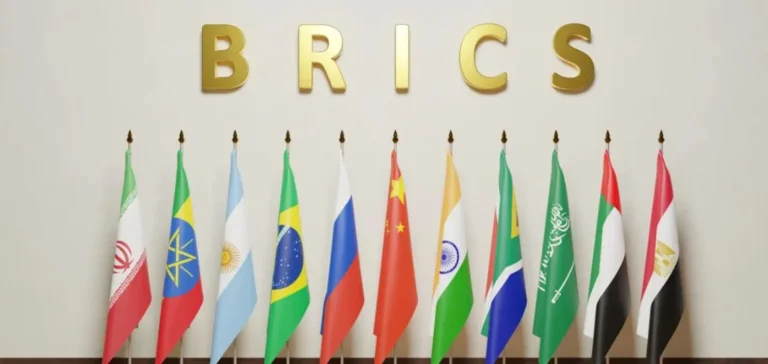BRICS leaders, recently gathered at an official summit in Brazil, have called for preserving stability in international energy markets, warning against negative impacts stemming from specific tariff and trade measures imposed by Western powers. This stance comes as several group members, notably Russia and Iran, face increased economic pressure due to international financial restrictions. In a global context marked by heightened geopolitical tensions and significant disruptions in energy markets, official BRICS statements underline the need for greater fluidity in energy and financial exchanges. Concerned countries particularly emphasize removing barriers to oil, gas, and financial transactions to ensure stable and diversified market supplies.
Targeted Criticism of Economic Sanctions
In their joint statement, BRICS members explicitly denounce the use of unilateral economic sanctions, arguing that these measures violate international law and negatively impact global energy trade. The group specifically targets Carbon Border Adjustment Mechanisms (CBAM), describing them as discriminatory protectionist measures adversely affecting their international trade. Such criticisms resonate within a context where key group members, such as Russia and Iran, see their energy exports constrained by Western economic sanctions. The central issue for these countries remains the free flow of hydrocarbons, essential to their respective economies.
The Growing Role of Local Currencies
To reinforce autonomy from a Western financial system dominated by the US dollar, BRICS leaders have reaffirmed their commitment to intensifying the use of national currencies in energy and trade exchanges. This strategic orientation aims to shield their national economies from international financial market fluctuations and risks linked to external monetary regulations. Brazil, India, China, Russia, and South Africa thus seek to strengthen internal economic resilience, promoting greater financial integration through interconnected currency exchange systems. BRICS energy ministers previously prepared a strategic document titled “Roadmap for Energy Cooperation 2025–2030,” approved during this meeting, strongly advocating this approach.
A New Internal Economic Dynamic
With the recent addition of the United Arab Emirates and Iran as new members, the BRICS group now controls a significant portion of global energy production, particularly oil and natural gas. Additionally, Saudi Arabia actively participates in meetings without being formally integrated into the group. The current structure of BRICS thus represents an unprecedented platform, bringing together major producers such as Iran, the United Arab Emirates, Russia, and major consumers like China and India. This configuration facilitates direct strategic exchanges between major producers and consumers, bypassing traditional Western-dominated channels.
This evolution leads many observers to closely monitor the practical implementation of BRICS’ decisions as international energy competition intensifies within an increasingly complex geopolitical environment.






















